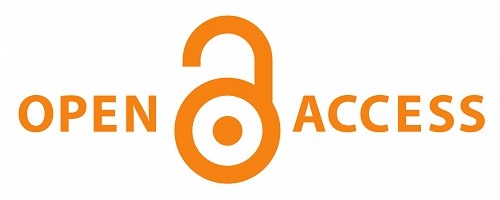
This is an open access article distributed under the CC BY-SA 4.0 license https://creativecommons.org/licenses/by-sa/4.0/
The International Journal Administration, Business & Organization (IJABO) holds the principle that all research is for the benefit of mankind. Research is a product of investment by society, and therefore, the results must be returned to all without borders or discrimination, serving society in a universal and transparent manner. That is why the IJABO provides free and open online access to all of its research publications. All accepted articles will be available immediately and free to download on the https://ijabo.a3i.or.id/index.php/ijabo/issue/archive page without limits and at no cost.
No permission is required from the authors or the publisher.
The IJABO understands that in this world, everyone has an equal opportunity to seek, share, and create knowledge. We hope the authors join us in this open-access concept.
Policy of Screening for Plagiarism
Papers submitted to International Journal Administration, Business & Organization (IJABO) will be screened for plagiarism using Turnitin/Grammarly plagiarism detection tools. The editor of IJABO will immediately reject papers leading to plagiarism or self-plagiarism.
Before submitting articles to reviewers, they are first checked for similarity or plagiarism by a member of the editorial team. The papers submitted to IJABO must have a similarity level of less than 20% (Exclude Bibliography), and the similarity score to each source is no more than 3%.
Plagiarism is the exposure of another person’s thoughts or words as though they were your own, without permission, credit, or acknowledgement, or because of failing to cite the sources properly. Plagiarism can take diverse forms, from literal copying to paraphrasing the work of another. To accurately judge whether an author has plagiarized, we emphasize the following possible situations:
An author can literally copy another author’s work- by copying word by word, in whole or in part, without permission, acknowledge or citing the original source. This practice can be identified by comparing the original source and the manuscript/work who is suspected of plagiarism.
Substantial copying implies that an author reproduces a substantial part of another author without permission, acknowledgement, or citation. The term can be understood in terms of quality and quantity, and it is often used in the context of Intellectual property. Quality refers to the relative value of the copied text in proportion to the work as a whole.
Paraphrasing involves taking ideas, words, or phrases from a source and crafting them into new sentences within the writing. This practice becomes unethical when the author does not properly cite or does not acknowledge the original work/author. This form of plagiarism is the more difficult form to be identified.
Section Policies
Articles
 Open Submissions Open Submissions |
 Indexed Indexed |
 Peer Reviewed Peer Reviewed |
Crossmark Policy
CrossMark, a multi-publisher initiative from CrossRef, provides a standard way for readers to locate the authoritative version of a document. Elsevier recognizes the importance of the integrity and completeness of the scholarly record to researchers and librarians and attaches the highest importance to maintaining trust in the authority of its electronic archive. Clicking on the CrossMark icon will inform the reader of the current status of a document and may also provide additional publication record information about the document.
Publication Types
|
Article Type
|
Short Description
|
| Addendum |
The publication item gives additional information regarding another publication item, mostly presenting additional results. |
| Duplicate |
Accidental duplication of an article in another journal. The text of the article is retracted. The HTML pages are replaced by a single page with citation details and an explanation. The PDF pages remain with a watermark on every page to notify it is a duplicate. |
| Erratum |
Article in which errors are reported that were made in an earlier publication in the same journal. It can be Erratum (publishing error) but also Corrigendum (author error). |
| Removal |
The text of the article is removed. The HTML pages and PDF pages of the article are completely removed and replaced by a single page with citation details and an explanation. |
| Retraction |
The text of the article is retracted. The HTML pages are replaced by a single page with citation details and an explanation. The PDF pages remain with a watermark on every page to notify it is retracted. |
| Review article |
Substantial overview of original research, usually with a comprehensive bibliography, generally also contains a table of contents. |
DOI 10.61242/ijabo-crossmark

















